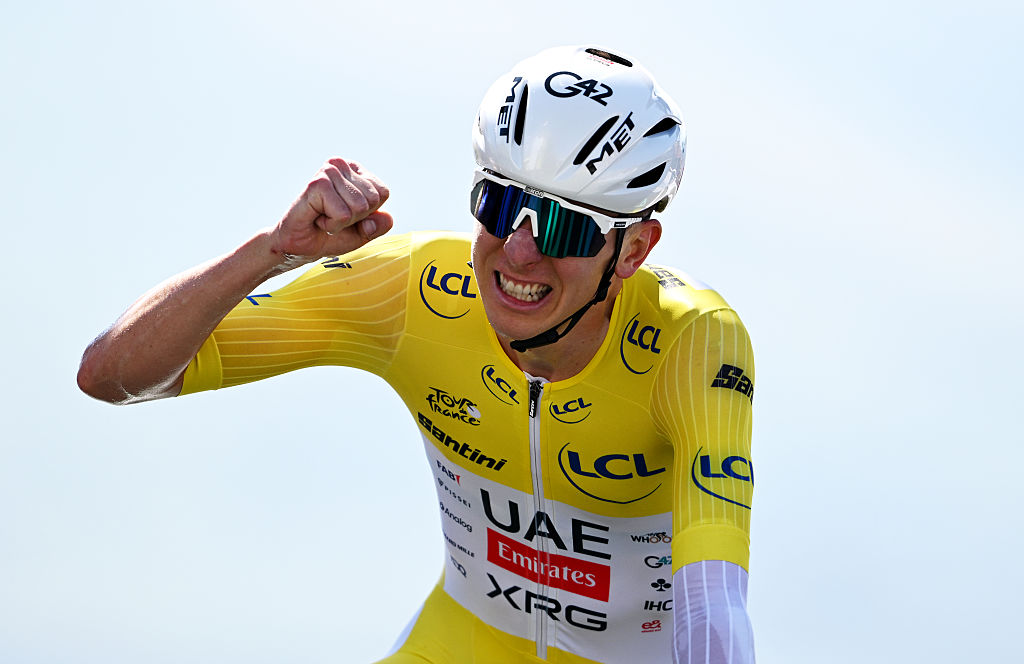A Grand year of cycling in the Netherlands
Giro and Tour learning for 2010 from Vuelta's successful start in Assen
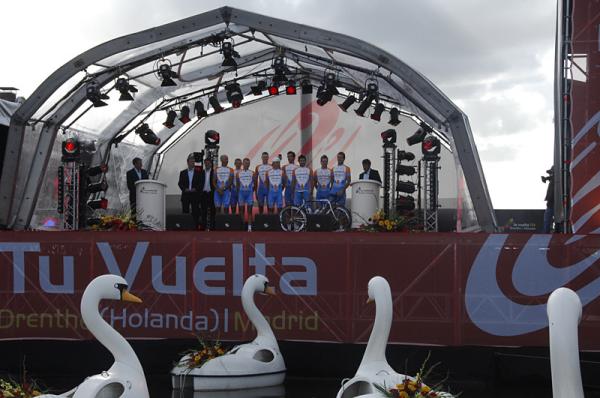
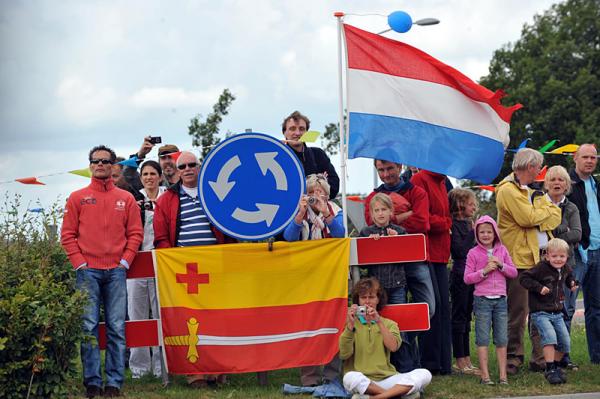
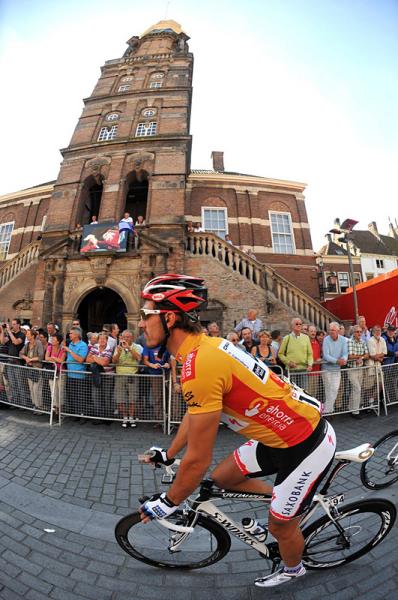
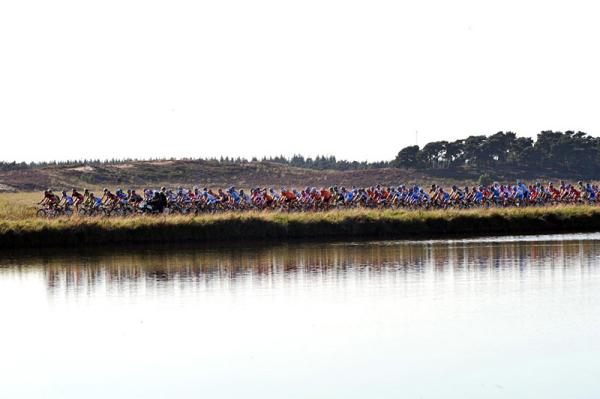
Spaniard Alberto Fernandez launched the first in an enormous series of Grand Tour starts in The Netherlands when rolled down the start ramp of the Vuelta a España prologue in Assen Saturday. In a remarkable coup, three separate Dutch cities will host the start of the Vuelta, Giro d'Italia and Tour de France in the next twelve months. Cyclingnews investigated how the low-lying nation has found itself at the top of cycling's agenda.
Sharing the spoils
It would take a brave soul to question The Netherlanders passion for athletic endeavours. As a breeding-ground for professional riders the country has produced some of cycling's legendary figures, including Joop Zoetemelk, Jan Janssen and Michael Boogard. However, the country's passionate spectators have also acquired their own legendary status.
The world has ample opportunity to witness the Dutch enthusiasm first hand at the Vuelta and at next year's Giro in Amsterdam and Tour in Rotterdam.
The Netherlands has a long history hosting the start of the Tour. The country set the precedent foreign Tour starts, or Grand Departs, in 1954.
An estimated 100,000 spectators turned out to watch the start of the first stage at Amsterdam's Olympic stadium. "All of The Netherlands seemed to have gathered on the roads," wrote French newspaper L'Equipe 50 years ago. "Spectators in closed ranks, uninterrupted, for kilometres and kilometres, clapping, cheering for everything that had to do with the Tour, the cyclists, the motorcyclists, the cars that followed or that led."
The country has gone on to host the start of the Tour on four more occasions. This year, the start of the Vuelta in Assen marked just the second time that the Spanish Tour had started outside Spain. The Vuelta started in Portugal 12 years ago, in 1997.
The latest race content, interviews, features, reviews and expert buying guides, direct to your inbox!
Just desserts
Hosting three consecutive Grand Tours may appear to be more than coincidence, but it is only an incredible stroke of luck. Each region was responsible for its own bid, each with a separate race organiser.
"It's also a sign that professional cycling is major sport in The Netherlands," said Gijs Mol, head of Amsterdam's Giro d'Italia organising committee. "The Dutch people play a lot of [amateur] sport, but professional sport is also very important.
"For Amsterdam it has been quite long process, we have an Olympic ambition and we have already been trying to attract huge sporting events to the city."
The success of the three Dutch bids is testament to the hard work of each committee since competition is high for the right. Although, there is a wealth of home-grown experience within The Netherlands that event organisers can draw on.
"There are all kinds of projects [within each bid]," said Mol. "For example, planning the parcours creates its own special needs for an individual city. Of course, there are [race organisation] specialists within The Netherlands who act as advisors, but the management of each event is conducted by all three cities separately."
The host cities communicate to maximise the success of the events for the country as a whole. "We do cooperate, for example between Amsterdam and Rotterdam," said Mol. "We've been to Italy to see the Giro in Venice, Milan and Rome. Of course, we were very interested in how they [the Vuelta] organised the race in Assen."
Who dares wins?
Beyond host-city prestige, the cities stand to enjoy huge benefit from tourists and worldwide recognition.
The Amsterdam organising committee estimates that up to 500,000 tourists could visit throughout the Giro d'Italia's stay in the city. It is an opportunity that it plans to take advantage of.
"It will be five days and we will try to combine the sporting event with cultural events to promote the special connection between Italy and Amsterdam," said Mol. "We do have a lot of people living in the city who have Italian origins, but also connections in arts, design and food. It's something that we hope to introduce during the week."
Initial estimates forecast an incredible financial gain for Amsterdam.
"A lot of tourists [from abroad] will come and a lot of people will travel from around The Netherlands. It is good promotion for the city but also for investment in hotels, restaurants and the people able to serve the tourists. We have estimated around four to five million euro in costs, and we hope that visitors will spend around 20 to 25 million euro."
Rotterdam will use the attention gained by the 2010 Tour de France to promote a campaign for renewable energy sources. The race's organiser, Amaury Sports Organisation, said that the 'New Energy' campaign was a factor in its selection of Rotterdam as a host.
In the wake of a magnificent start to the Vuelta in Assen, there is no doubt that the Dutch will also prove gracious hosts for the Giro and Tour.
